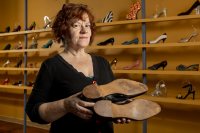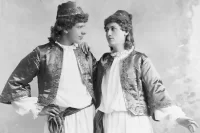
Actor, director, and educator Kevin R. Free carried a binder with the script for The Gravediggers Union around the Gannett Theater stage, reading alongside Bates students as he filled in for an absent cast member in a dress rehearsal.
Like the pro he is, the visiting director skipped nimbly around the cemetery set while reading his lines. He leapt up on a hillside beside makeshift gravestones, bounded across the faux cemetery grass, and, in one scene, hopped into a remarkably realistic grave to lie down. And then, just as he nearly disappeared from view, Free giggled.
The burst of mirth illustrated what Kevin R. Free is seeking in his artistic work at the moment. “Joy is my activism,” he said.
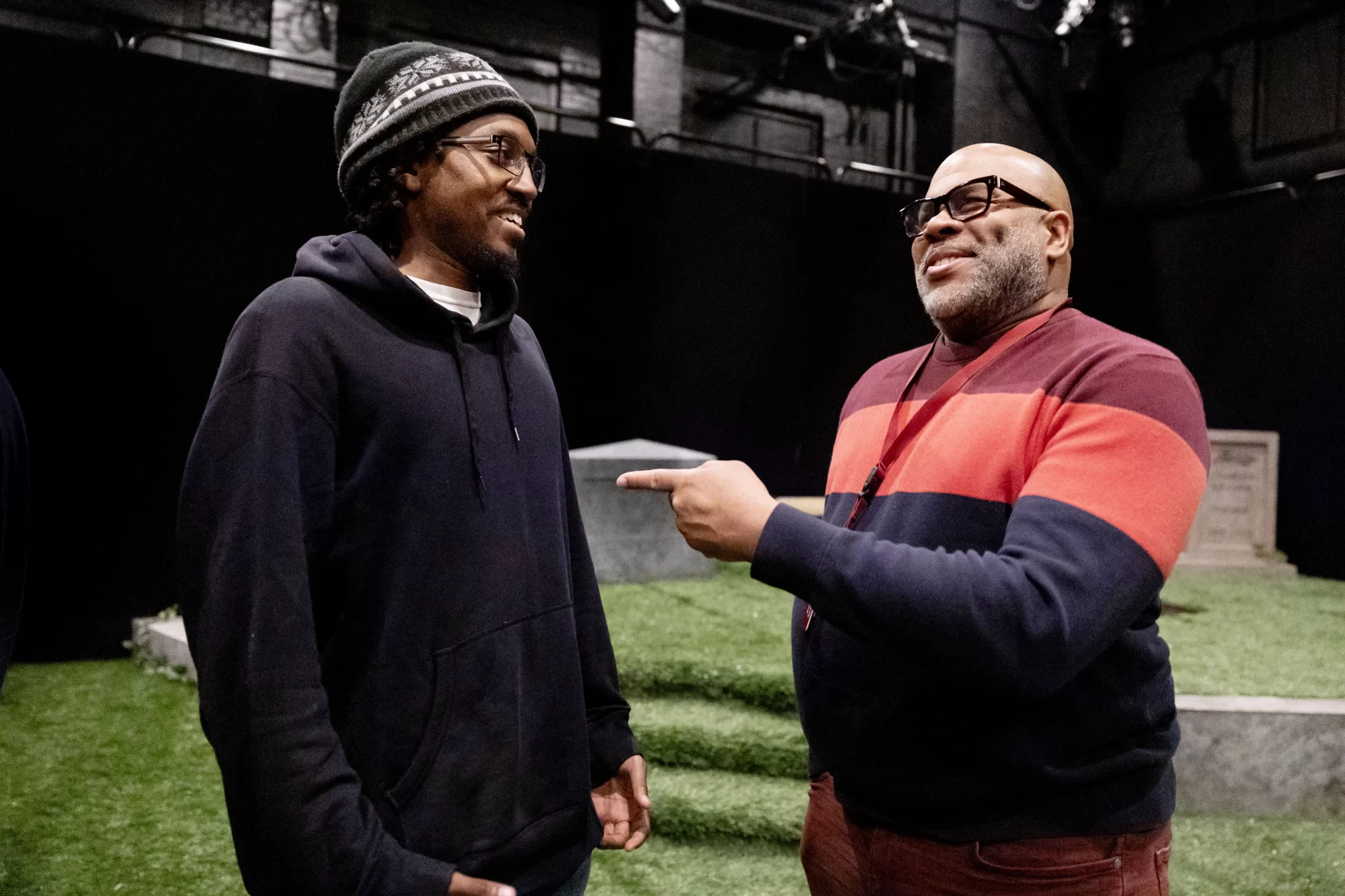
While his early career as a director and actor mostly focused on social justice, Free now wants to take a different tack in highlighting the cultural, political, and legislated wrongs he sees in society today. He wants to amplify the joy found in life, however small, however he can.
In directing The Gravediggers Union, Free is the first visiting director at Bates who is sponsored by a college grant aimed at positioning the Department of Theater and Dance as a leader in issues around diversity, equity, and inclusion in their artistic endeavors.
As one who brings the perspective and pedagogy of an acclaimed director who is also gay and Black, Free has done this tenfold. But Bates faculty members and students say Free brings even more: a windfall of enthusiasm, a frank honesty, and a gregarious energy as he spreads the joy he seeks.
“Kevin is fantastic. The best guest director ever,” said Kati Vecsey, who is chair of the Department of Theater and Dance, a senior lecturer in theater, and vocal director for theatrical productions who invited Free to serve as a guest director. “We are networking to find and bring a more diverse faculty to campus to direct shows because I think it’s good for the program and it’s good for the students to see other ways of directing and pedagogical approaches.”
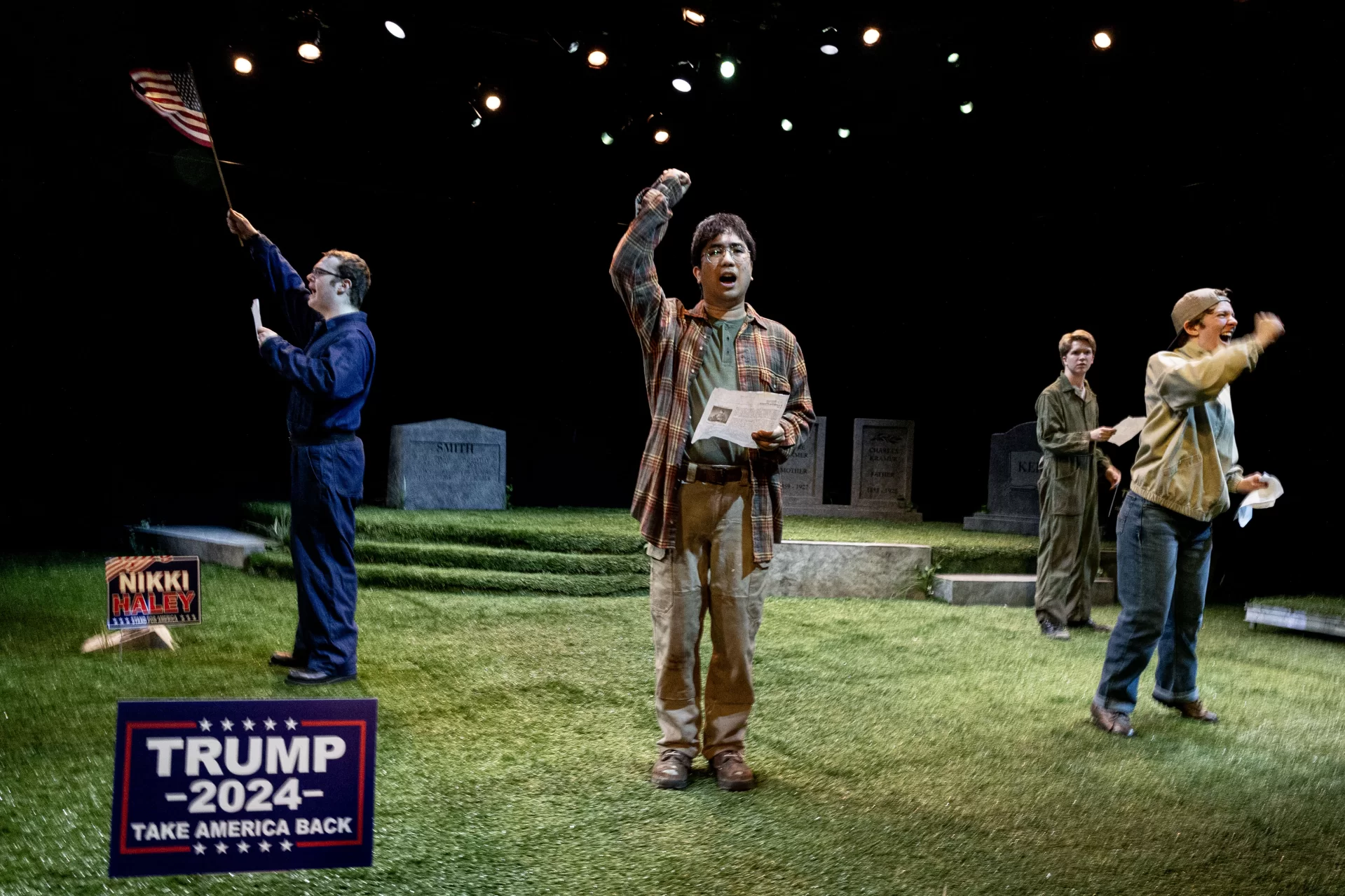
The play is about six gravediggers who work at a cemetery in rural New Hampshire when their jobs are suddenly threatened by the cemetery version of a big-box store soon to purchase the smaller cemetery and replace the golf course across the street. The blue-collar workers — who uniformly seem to enjoy a slower-paced work life — band together to hatch a plan to raise money to buy their cemetery. They decide staging a play will help.
Two of the student actors in The Gravedigger Union are theater majors: David Allen ’24 of Dorchester, Mass., and Caroline Cassell ’24 of Woodstock, Vt., both of whom are acting in the production as part of their senior thesis work in theater.
In his senior thesis, Allen looked specifically at the difference in casting white students and a Black student — himself — in the role of the cemetery owner. When asked about the experience of working with Free, Allen put his head back, closed his eyes, and quietly laughed. He said having Free as a mentor was transformative because he said a Black director brings a different layer of understanding of a Black actor, because they share similar lived experiences.
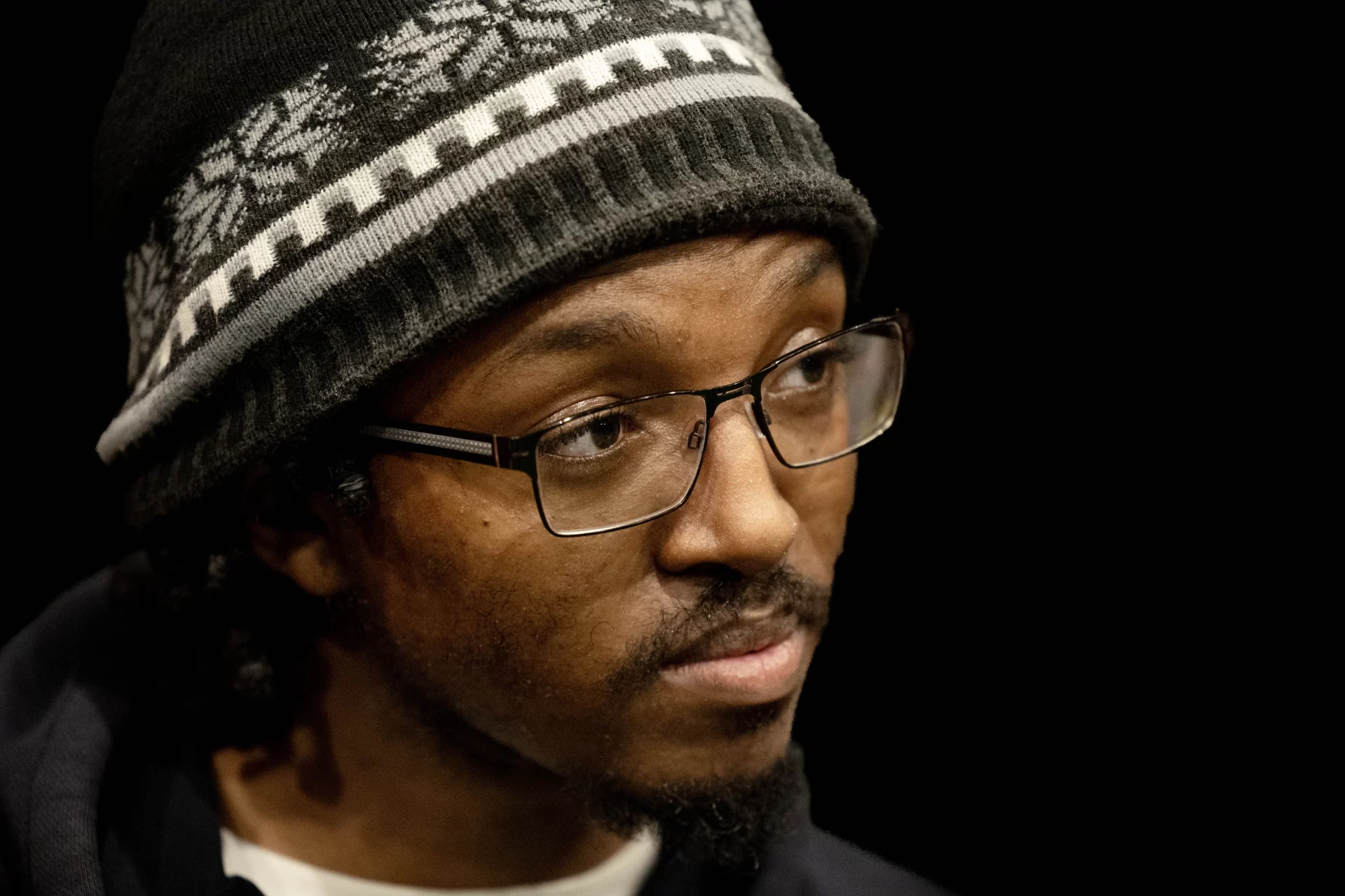
“When it comes to acting, he understands how to attack it from a Black actor’s perspective, which I really didn’t get in Bates,” Allen said. “And it’s really interesting to see how he wants me to push certain acting choices and movement choices because he understands what I would have to go through mentally.
“When you’re talking about Black theater or having Black theater classes, it’s different when a Black theater director is talking to you about these things because they can relate to it themselves and explain it from their perspective. If you have a white person teaching Black theater, it’s like they’re giving you the information, but they can’t personally relate to it.”
Free was drawn to Brian James Polak’s script for The Gravediggers Union because it’s a study in life and death, and in finding joy in life, even in the face of death. He also knows the playwright and is interested in producing contemporary plays.
Another reason Free wanted to produce this play: Its characters are not gender- or race-specific. In casting characters and directing actors, Free said: “Humanity should come first.”
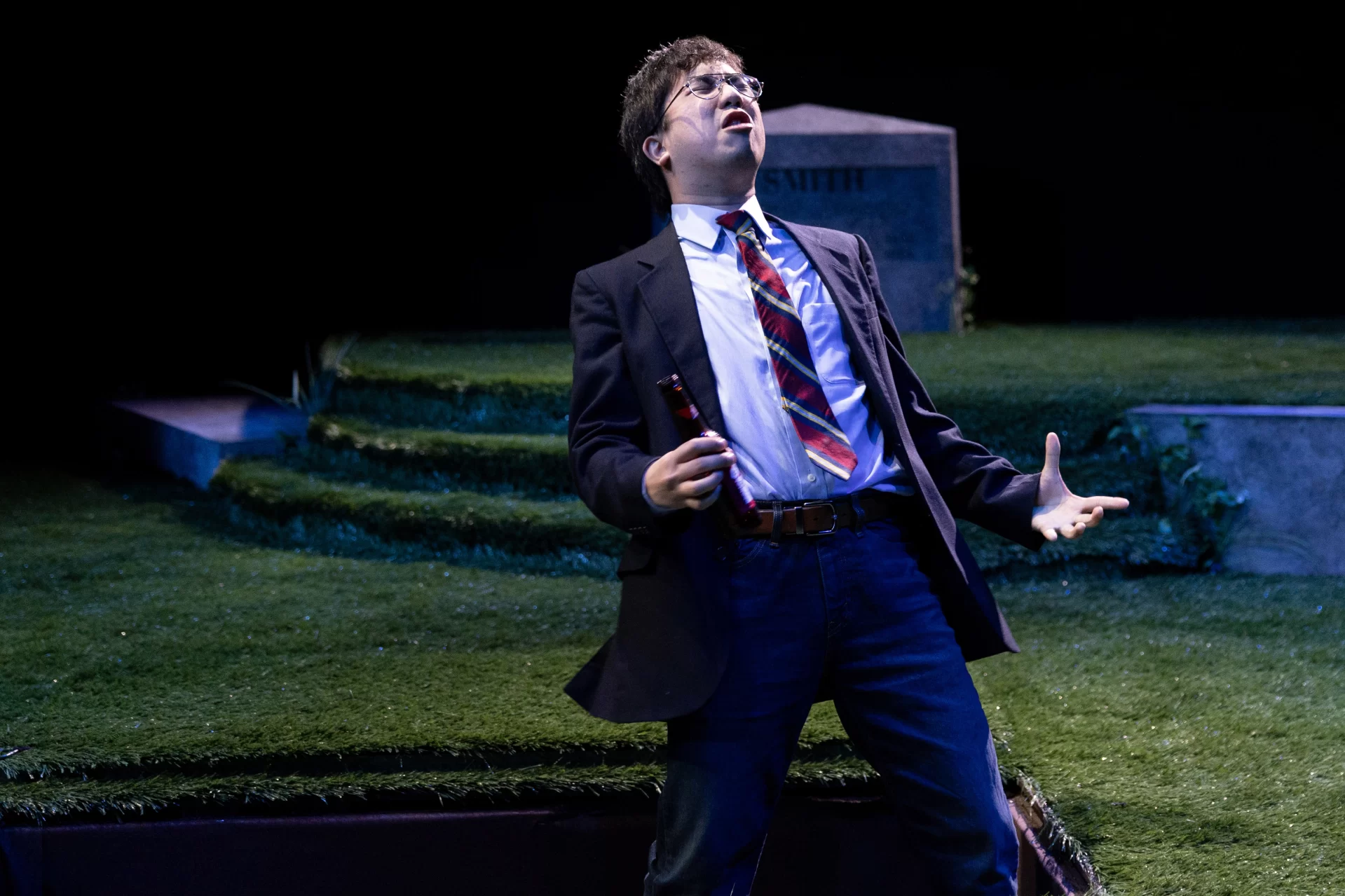
“I think young people in general need experiences that are specific to them,” Free added. “And so I was hoping to choose a play from a playwright who said that the roles can be played by the genders that the actors express and by the races that the actors identify with.
“I think before 2020, we weren’t taking people’s humanity into account in the theater. I feel like I’m on the vanguard of those people who say we can’t separate what’s happening outside in the world from what’s happening in the theater on the stage.”
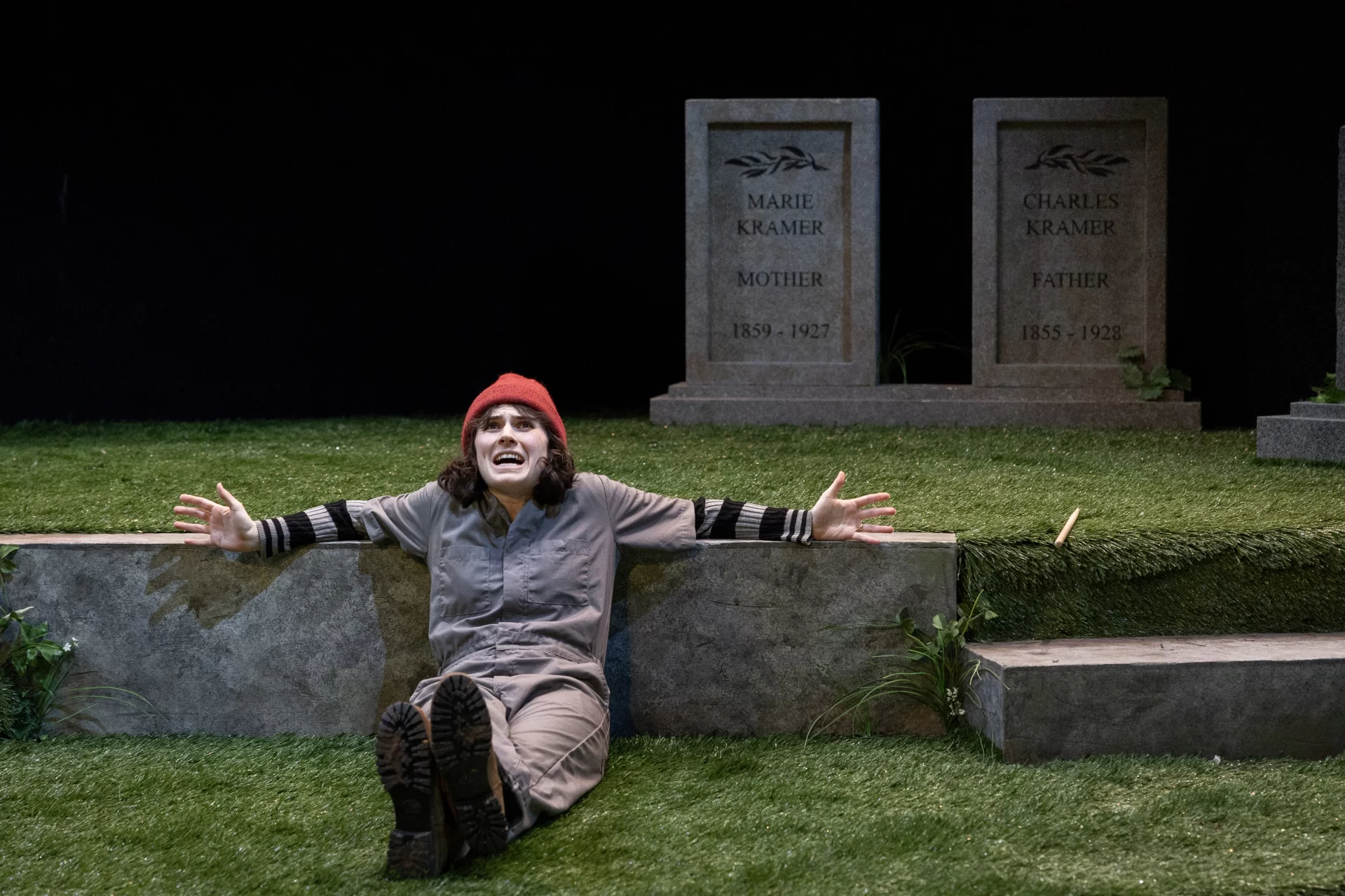
Caroline Cassell ’24 of Woodstock, Vt., plays the role of Mike, a drummer in a local band who lives at home with their mother. A triple major, Cassell’s senior theater thesis explores process, comedy, and gender fluidity within The Gravediggers Union.
“I really love how all the characters in this play don’t have a designated gender,” Cassell said. “There’s also so much possibility to explore humor and clowning, not only with the silliness written into the script, but within my own journey in learning how to drum!”
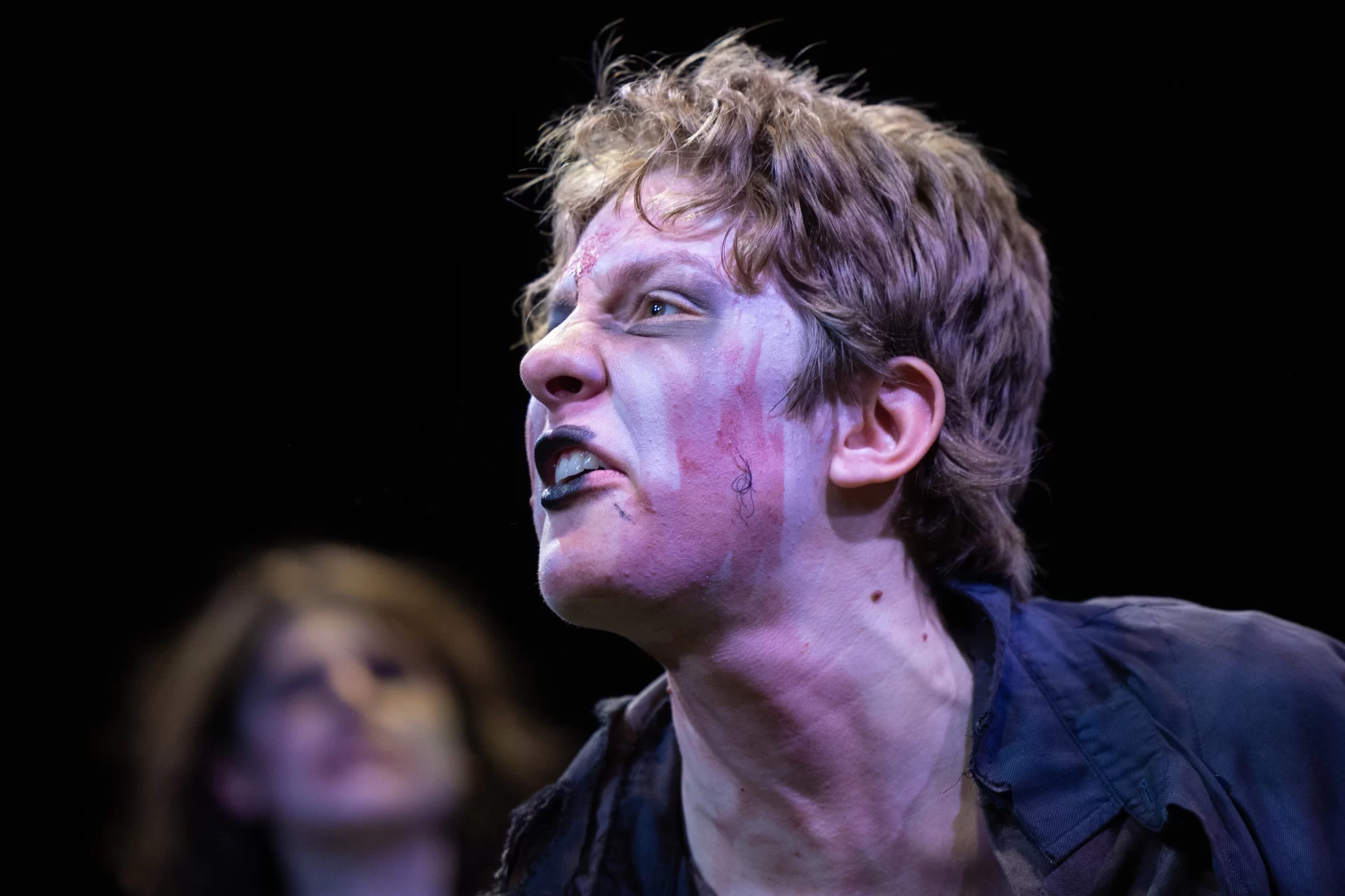
In this exploratory learning process, Cassell said, Free was an apt guide. They called him an inspiration, open, and naturally collaborative.
“He embodies what being a theater maker in a safe space looks like. He supports and makes room for us as whole human beings. While his direction is focused, it also allows us to explore characters on our own, which I’ve really enjoyed,” Cassell said. “I’ve felt incredibly comfortable and seen and heard in our space. Inviting Free as a guest director, the theater department has created an incredible opportunity to work with a groundbreaking artist in the field. I’m very grateful not only for his skilled direction but for his mentorship and care.”
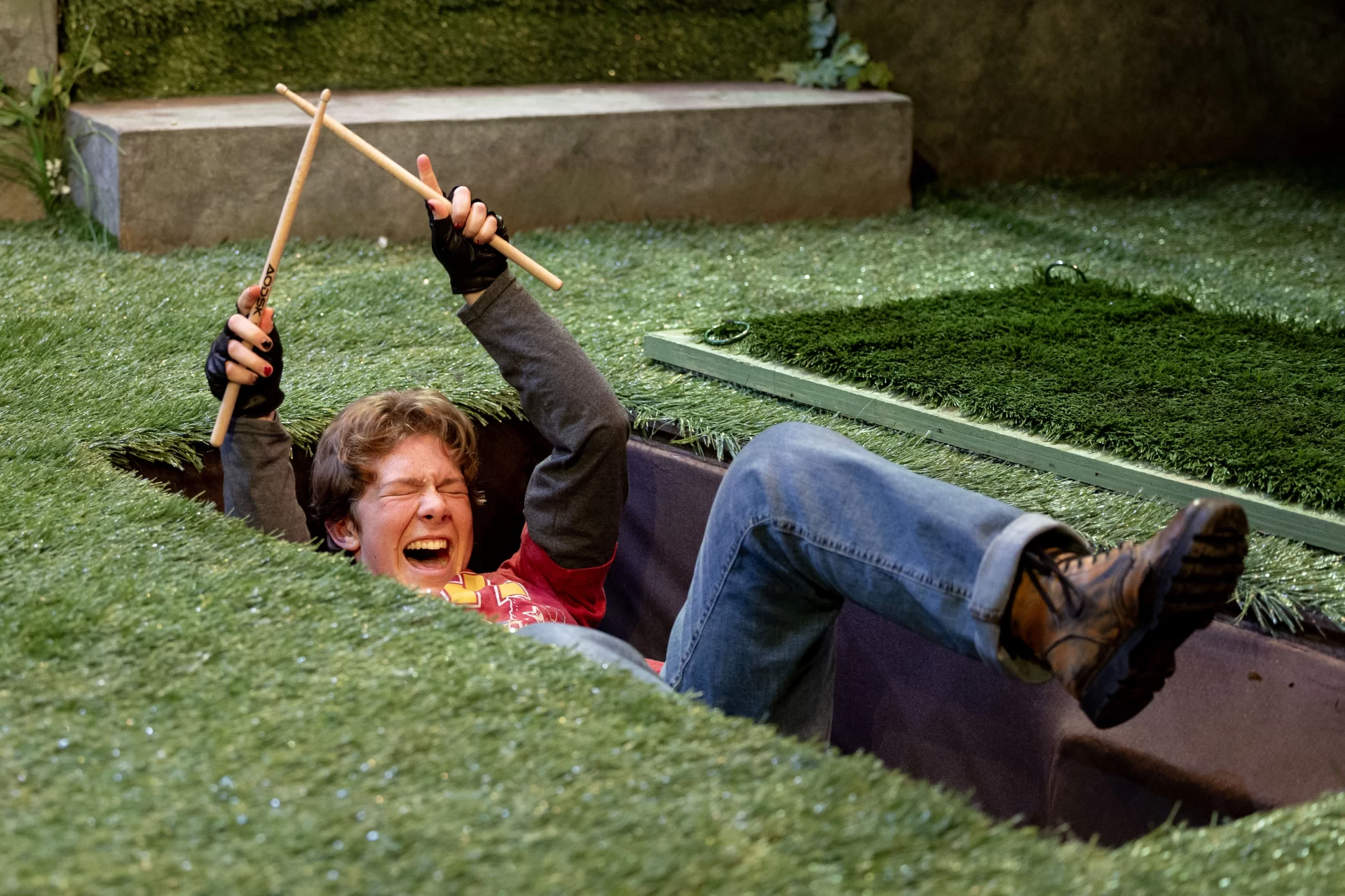
Most recently, Free has worked as the artistic director of Mile Square Theatre in Hoboken, N.J., and as a director at Portland Stage Company in Portland, Maine, where he’s directed six plays. He also is a notable audiobook narrator.
Free said having a Black gay man serve as a leader, teacher, or role model is valuable for all students — BIPOC, white or LGBTQ — because it is a way to amplify and celebrate our shared experience as human beings.
“You can’t legislate tolerance, as much as we’ve tried. You can’t make people not be prejudiced. But what we can do is create a world where a person like me can be the leader in the room and thereby create an experience for students to be led by someone like me so they can see themselves reflected through my humanity — both white and Black, whatever,” Free said.
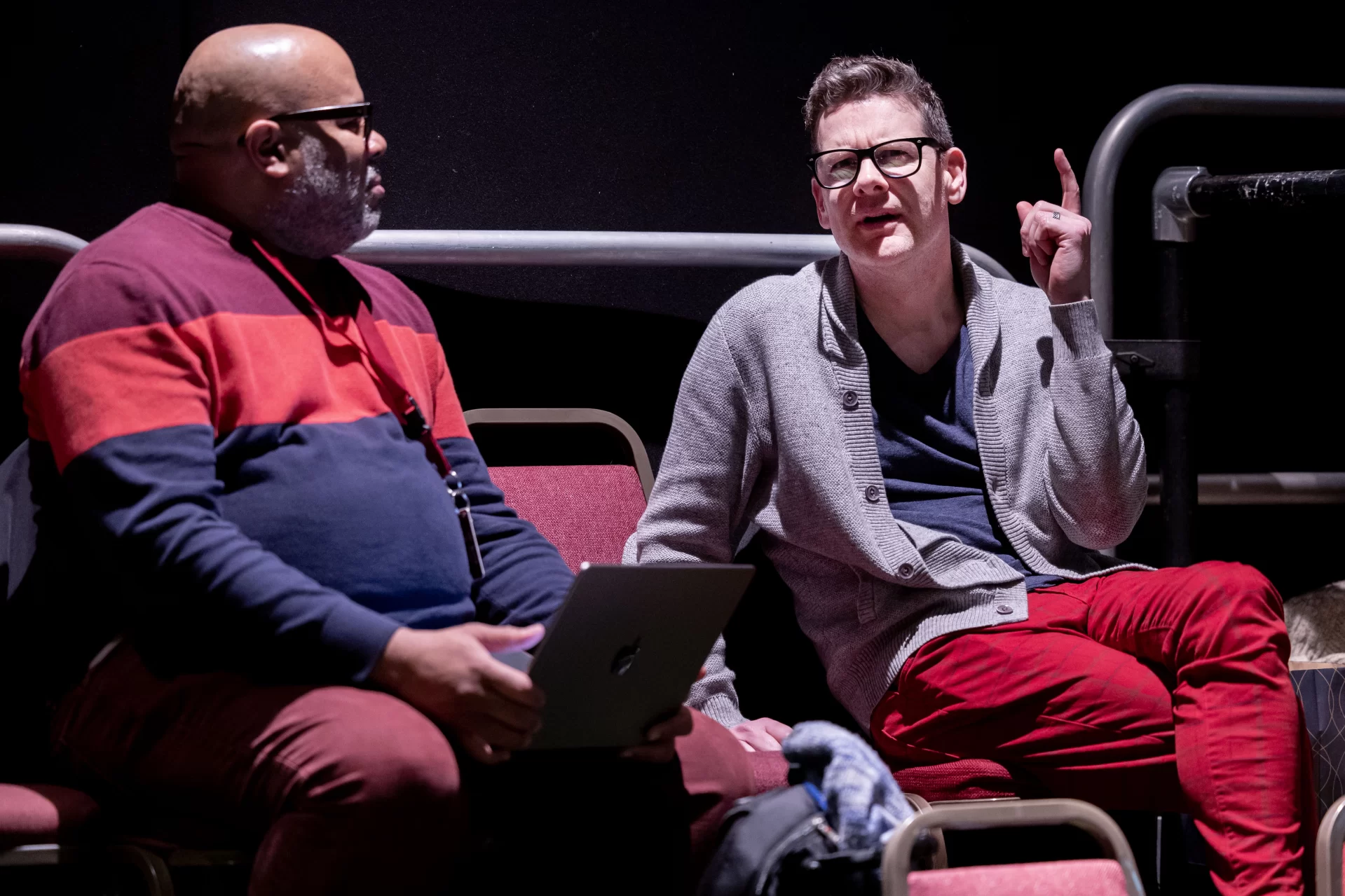
The funding for Free’s residency comes from a $1.2 grant million grant awarded to Bates in 2018 from the Andrew W. Mellon Foundation to support the faculty’s ongoing work to strengthen the college’s humanities and humanistic social sciences curriculum and teaching while supporting greater equity and inclusion.
Mellon funding supported other changes and new protocols in the department, Vecsey said, including new audition protocols, a more collaborative approach to selecting plays, and stronger community agreements to foster supportive, respectful, and inclusive environments in theater and dance productions.

